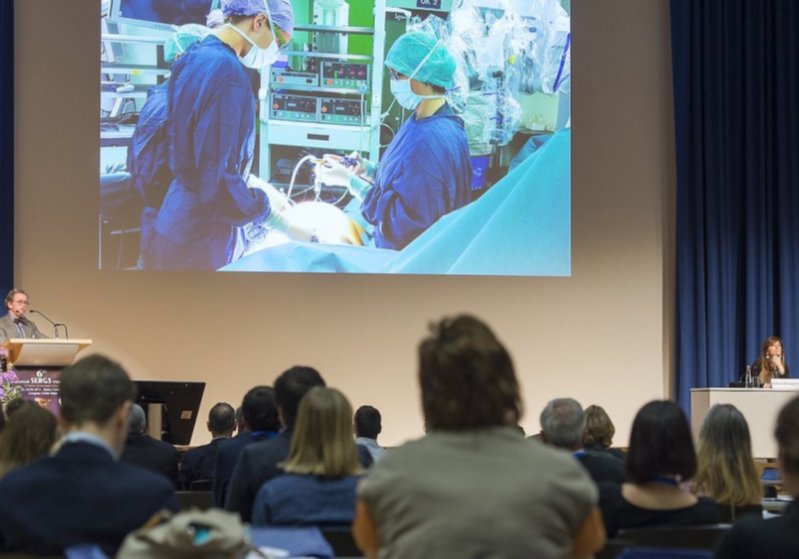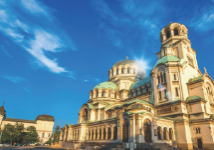About Sofia
Sofia is the capital and largest city of Bulgaria. The city’s motto is: Grows, but never gets old. It is located in the western part of the country, at the foot of Vitosha Mountain.
Weather
The city has elevation above the ground of over 500 m and four distinct seasons throughout the year.
History
Sofia is one of Europe’s most ancient cities with history, dating back to over 5,000 years BC. It keeps a great variety of archaeological, historical, art, cultural and religion artifacts, buildings, monuments. Right at the heart of the city is located the St. Alexander Nevsky Cathedral – the second largest building of this kind in the Balkans. Visitors of the city can explore spectacular monuments, such as the Rotunda of St. George – part of a large archeological Roman complex, the St. Sofia Basilica that inspired the city’s coat of arms, as well as the Boyana Church – a listed UNESCO World Heritage building with unique medieval wall paintings.
City Tour
Here is how a regular city tour starting at the Sofia University looks like:
- St. Alexander Nevski Cathedral
- St. Sophia Basilica
- Russian Church and Military Club
- National Gallery (Formal Royal Palace)
- National Theater Ivan Vazov
- City Garden
- Rotunda of St George
- Bulgaria’s Presidency
- Former Communist Party Headquarters
- Council of Ministers
- Mineral waters
- Bath / Museum of Sofia
- Sofia Synagogue
- Banya Bashi Mosque
- Largo Square ruins
- Church of St. Petka
- Statue of Sofia
- Coat of arms of Sofia
- St. Nedelya Church
- Palace of Justice
- Palace of Culture
Today
Today Sofia is a modern city filled with popular museums, art galleries, cinemas and cafés. The city is striving to become the IT and innovation hub on the Balkans, being an attractive investment spot and a flourishing outsourcing center.
Several business zones are gradually expanding in the city attracting plenty of big local and international companies. Nearby, huge retail areas and malls have been built meeting the requirements of the modern citizens for shopping, dining and entertainment.
Additionally, Bulgaria provides some of the fastest Internet connections in the world. Free Wi-Fi can be found almost everywhere in Sofia, including parks, cafés, bigger stations and shopping malls.
Scientific Life
Sofia is a gathering point of the scientific life of the country with plenty of universities, schools, academic institutions. It hosts the Bulgarian Academy of Sciences, which comprises 42 autonomous scientific units and over 3,000 scientists.
Being a leading country in innovations in various fields of technology in Eastern Europe and particularly on the Balkans, Bulgaria grows a well-educated manpower and fruitful environment predisposed to direct adoption of latest IT solutions, which influences the development of many sectors, including the health system. Being a nation with sustainable policy in favor of patients shows care and devotion to research and use of new methods and good practices in treating people in need, as well as encourages the scientific attempt to support the daily dynamics in medicine.
Bulgaria has plenty of municipal, state – regional and university, and private hospitals, and is a place for professional development of prominent health experts from various fields of medicine.
Population
Sofia hosts over 1.23 million residents within a territory of 492 km².
Time
The time zone is UTC+02:00.
Transportation
The city is well organized and connected in terms of public transportation with various tram, bus, trolley and mini bus lines. It has also two interconnected metro lines, serving 35 stations, with a total route length of 40 km, and a third metro line, which is under construction on its way to be put in exploitation by 2019. The metro connects the Sofia Airport’s Terminal 2 to the city center and any other parts of the capital. The journey between airport and central Sofia takes about 20 minutes with service provided 05.30-24.00 hours.
Travelling by taxi is another option for transportation in Sofia. However, a guest to the city should bear in mind and catch taxis from reputable companies like OK Supertrans, Yellow Taxi, Green Taxi, and check the rates in advance in order to travel for fixed and fare prices, such as:
- Initial Charge: 0.60 – 0.90 lv. (0.30 – 0.45 EUR)
- Daytime rate per kilometer (6 am – 10 pm): 0.69 – 0.90 lv. (0.35 – 0.45 EUR per km)
- Nighttime rate per kilometer (10 pm – 6 am): 0.70 – 0.99 lv. (0.35 – 0.50 EUR per km)
- Waiting rate: 0.24 lv. per minute (0.12 EUR/min.)
- Call-out charge: 0.90 lv. (0.25 – 0.45 EUR)
Airport
Sofia Airport is the main international airport of Bulgaria located 10 km from the city centre. It has two passenger terminals – Terminal 1 and Terminal 2. Terminal 1 serves low-cost and charter carriers, while Terminal 2, officially opened in late 2006 and significantly bigger, serves regular international airlines and only one low-cost carrier.
The majority of Europe’s capital cities have direct flights from and to Sofia Airport.
You can find a map of direct flights here.
Visa & Passport Requirements
Bulgaria applies the European Union’s Common Visa Policy – visa-free system for holders of valid Schengen visas. EU nationals are only required to present a valid national passport or national identity card. EU citizens may stay in Bulgaria for up to 90 days without need to have a visa. For periods longer than 90 days, they need to register with the local police and obtain a legal permit to stay.
Types of Bulgarian visas:
- Visa A – for airport transfers
- Visa C – transfers and short term stay in Bulgaria
- Visa D – for longer stay in Bulgaria
You can find further information on visas here.
Money and Exchange Rates
The currency of Bulgaria is lev (plural: leva). It is divided in 100 stotinki. The word “lev” means “lion”, which is the symbol of Bulgaria. The fixed rate of lev to euro is 1.95583 leva = 1 euro.
You can find further information on the valid exchange rates according to the Bulgarian National Bank here:
http://www.bnb.bg/Statistics/StExternalSector/StExchangeRates/StERForeignCurrencies/index.htm
Accommodation and Restaurants
Sofia has various opportunities for 5-, 4-, 3-star hotel accommodation as well as growing number of Airbnb options for a stay. The best premium hotels in town are located in the city center close to the venue of SERGS 2019. But a guest to the capital can find reasonable options on a close distance by walk or public transportation.
Sofia gathers the best of local taste and various international cuisines. So the city has plenty of restaurants with typical home-made dishes and creative interpretation of world-known specialties.
More information about a trip to Sofia can be found here:
Local news in English can be found here:www.novinite.com
Registration
Online registration is closed. Please register onsite on Thursday September 26th, 2019.
SERGS 2019 Programme
View the preliminary conference programme.






